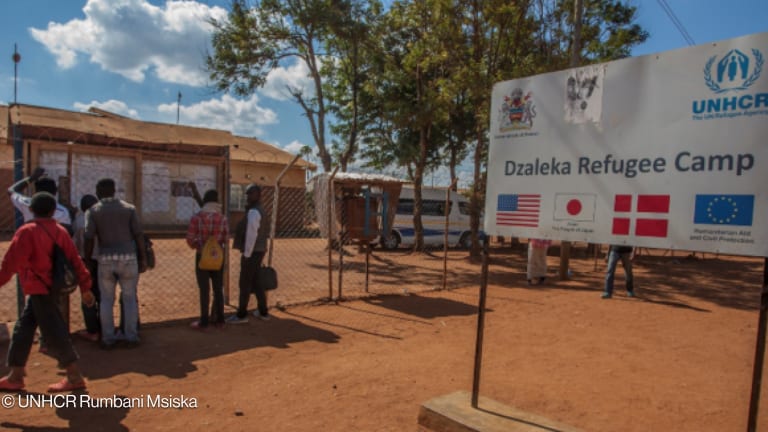
The road for Somali refugees returning to their homes is still a long, dangerous and costly trek.
But Kenya, the largest country host, is mapping out a plan to resettle Somali refugees that highlights a delicate balance between Kenya’s drive to unload the cost of hosting refugees and the Somalia’s readiness to welcome back its residents in exile amid daily security threats.
Kenya expects by the end of August to convene a conference co-sponsored by the Somali and Kenyan governments as well as the U.N. High Commission on Refugees that will come up with a draft framework to guide the return of about 600,000 Somali refugees.
“It’s framework of dialogue,” Alessandra Morelli, UNHCR country representative in Somalia, told Devex. “This is a framework that basically integrates all the important points of the international instruments when it comes to return.”
The details of the repatriation plan have not yet been discussed, as the verbal agreement reached two weeks ago by the two governments needs to be formalized. Once the framework is done, the next step is to tackle an assistance package that will satisfy all concerned parties, including the refugees.
Repatriation aid
Kenya has called on donor countries to support the repatriation, but it is still unclear whether the funds for this initiative will come from the $300 million recently pledged for Somalia at a donor conference held last May.
While repatriation is a welcome development, donors remain concerned about security threats in Somalia — a crucial issue that will define their response to Kenya’s plan.
“Humanitarian actors remain concerned that security conditions constrain the provision of adequate development and humanitarian assistance and protection inside many parts of Somalia,” a spokesperson from the Canadian International Development Agency told Devex.
Despite those security woes, CIDA for instance still supports repatriation.
“Should conditions in Somalia allow for large-scale voluntary repatriation, CIDA would consider a request to support repatriation through a trusted partner,” the spokesperson added.
UNHCR: ‘Voluntary return’
Despite all repatriation efforts, a unilateral decision to send all Somali refugees back to a country plagued by bomb explosions will probably not be considered, implementing partners said.
“Any return must be on a voluntary basis. This is a key principle where UNHCR stands in a very, very firm decision,” Morelli insisted.
The UNHCR official added: “If there is support in the returns process, it must be done in a safe and controlled manner and only in areas where this return can be sustainable.”
The U.N. refugee agency is waiting for the Somali government’s resettlement plan and currently forming a unit inside the country’s fledgeling government to deal with refugees and provide technical assistance to the public sector in this sector.
Reintegration after repatriation
Another major concern is how returnees will be fully reintegrated into society, which seems to depend to more on Somalia’s capacity than Kenya’s willingness to send them home.
Once the refugees are back, development actors should provide services that support both the receiving communities and returnees. “This will work to mitigate jealousy and conflict between the two groups,” Fred McCray, World Vision’s emergency program management officer, told Devex.
Initially they will lack basic food, clothing and shelter, and in the next phase, for instance when they go back to working as farmers, they will need tools, seeds and irrigation, and later on schools for children that have barely received an education for many years, as well as health programs to resolve outbreaks of communicable diseases in crowded communities.
The Somali government, McCray explained, should also address property disputes arising from land previously owned by returnees but has now been claimed by others.
Read more development aid news online, and subscribe to The Development Newswire to receive top international development headlines from the world’s leading donors, news sources and opinion leaders — emailed to you FREE every business day.




